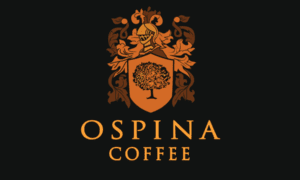Are you an avid coffee enthusiast who starts their day with a steaming cup of joe, energizing your senses for the day ahead? If you’re curious about the origins of your beloved brew, you might have come across the buzz surrounding organic coffee. But have you ever considered exploring the world of non-organic coffee? In this SEO-optimized article, we will delve into the intriguing secrets hidden within every sip of non-organic coffee, covering flavors, farming practices, and sustainability. So grab your favorite mug, and let’s embark on this fascinating journey into the realm of non-organic coffee!
Understanding Non-Organic Coffee:
When it comes to coffee, two primary types exist: organic and non-organic. Each type undergoes different cultivation and processing methods, resulting in distinct flavors and aromas.
Organic coffee derives from beans grown without synthetic fertilizers or pesticides. The coffee is processed without any chemicals, resulting in a purer, more natural flavor.
Non-organic coffee, on the other hand, is cultivated using synthetic fertilizers and pesticides. The beans are processed with chemicals or other artificial agents, leading to a more uniform flavor profile.
Key Pros and Cons of Non-Organic Coffee:
Organic coffee boasts benefits like being free from harmful chemicals, potentially preserving your health. However, it can be more expensive and less readily available than its non-organic counterpart.
Non-organic coffee, though more affordable and accessible, may come with concerns about pesticide residues and environmental impacts due to its cultivation methods.
Insight into Non-Organic Coffee Production:
The term “non-organic coffee” encompasses two possibilities: coffee grown without synthetic fertilizers or pesticides or conventionally grown coffee that lacks organic certification.
Typically, non-organic coffee cultivation involves the use of chemicals and pesticides to maximize yields and minimize costs. Unfortunately, these chemicals may find their way into the final product, posing potential health risks.
Organic coffee cultivation, while more environmentally friendly, can be challenging and costlier due to lower yields.
The Impact of Pesticides in Non-Organic Coffee:
Pesticides are commonly used in non-organic coffee production, especially in large-scale operations. This poses risks to the environment, wildlife, and human health.
Non-organic coffee may contain higher levels of mycotoxins, toxic compounds produced by fungi that can harm health.
Choosing organic coffee can minimize exposure to harmful chemicals and contribute to a healthier lifestyle.
Considering the Health Effects of Non-Organic Coffee:
Non-organic coffee consumption may expose individuals to pesticide residues, potentially leading to long-term health issues, including increased cancer risk.
Mycotoxins found in non-organic coffee have been associated with various health problems, such as liver damage and reproductive toxicity.
Choosing organic coffee can reduce exposure to harmful substances and promote a healthier coffee-drinking experience.
Exploring Alternatives to Non-Organic Coffee:
While non-organic coffee remains popular, it may have drawbacks, such as ethical concerns and lower quality due to pesticide use.
Consider exploring alternatives like fair trade coffee, which ensures better working conditions for farmers, or organic coffee, which provides a flavorful and chemical-free option.
Conclusion
Understanding the intricacies of non-organic coffee can help you make informed choices about your coffee consumption. While non-organic coffee may be more affordable, it comes with potential health and environmental concerns. Exploring alternatives like organic or fair-trade coffee allows you to savor a delicious cup while supporting sustainability and ethical practices. So, whether you choose to stick with your favorite non-organic brew or venture into the world of organics, knowledge empowers you to make the best choice for your coffee-loving soul!



































